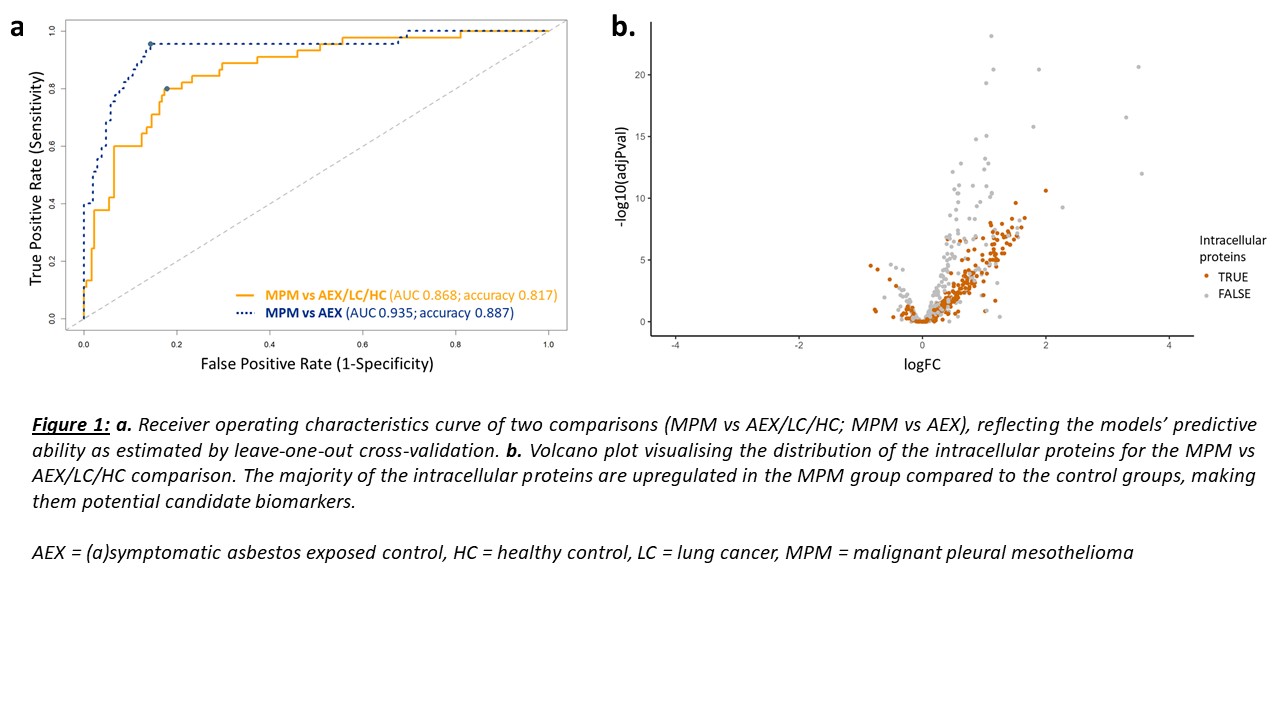Abstract
Introduction: : Invasive diagnostic techniques contribute to a late diagnosis and hence poor prognosis in patients with malignant pleural mesothelioma (MPM). Blood biomarkers, in particular the less explored low abundant tissue leakage proteins released after cell death or damage, seem promising as less invasive alternatives.
Aims: Define a new diagnostic MPM biomarker panel to differentiate MPM patients from different control groups.
Methods: 230 plasma samples from MPM patients (n=45), lung cancer patients (n=27), (a)symptomatic professionally asbestos-exposed individuals (n=105) and healthy controls without known asbestos exposure (n=43) were processed using a unique method to enrich for tissue leakage proteins. All samples were analysed by liquid chromatography-tandem mass spectrometry. Differentially expressed proteins were selected at a false discovery rate ? 0.05. A random forest classifier was used to select the most performant discriminatory proteins. A ridge regression model was constructed and internally validated by leave-one-out-cross-validation.
Results:

Conclusions: We developed a diagnostic biomarker panel for MPM with high accuracy. Secondly, we identified a high number of low abundant intracellular proteins in the MPM group. Additional testing is necessary to verify if these intracellular proteins are more performant as diagnostic biomarkers than plasma proteins.